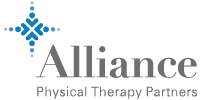
Fascial counterstrain (FCS) is a type of advanced manual therapy that is utilized to decrease pain and discomfort in patients in a holistic approach. It involves releasing reflective tissue contractions. It can be used to treat a wide variety of areas throughout the body where muscle spasms may occur.
Myofascial release is also a type of manual therapy that is used to treat musculoskeletal disorders and immobility. The goals of myofascial release are to relieve spasming muscles and tense myofascial areas and promote circulation.
Each of these is used with the intention of relieving patients who are experiencing discomfort. Both are manual manipulation techniques, and both can help reduce cortisol and epinephrine in patients with injuries.
What is the difference between fascial counterstrain and myofascial release? How can you determine which is right for you?
Fascial counterstrain techniques can be used to treat muscle spasms caused by acute trauma. This generally includes muscle pain from surgeries, car accidents and sports injuries. One specific benefit of FCS is that it is extremely gentle on patients and can be used on those with even the most severe injuries. Myofascial release techniques can be used on tense muscles or for conditions that have caused immobility to occur in a patient. They loosen tight tissue for better freedom of movement.
In short, the fascial counterstrain is more effective for treating pain, whereas myofascial release is often more effective for improving mobility.
Alliance PTP is ready to help you find top-notch PT and to understand the difference between fascial counterstrain and myofascial release
At Alliance Physical Therapy Partners, we're proudly bringing together physical therapy practices across the country to help people get the high-quality PT they need. Want to see a physical therapist in person? We can put you in touch with an Alliance PTP partner that's close to you and that can help you address the need for fascial counterstrain vs. myofascial release.
Not keen on in-person PT sessions or not close to an Alliance PTP partner? No worries. We also offer effective and affordable virtual physical therapy through our Agile Virtual Physical Therapy platform.
Contact our team today so we can help you find the most effective physical therapy services for your injury or condition.
Get Help at a Location Near You
